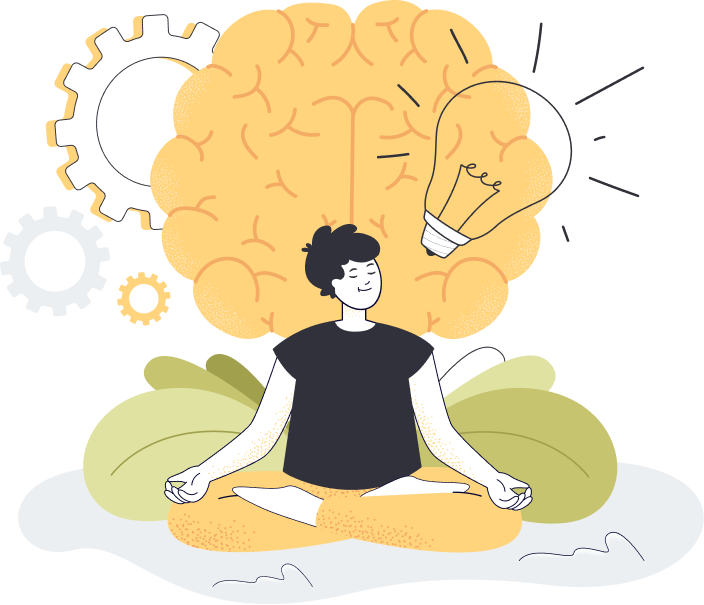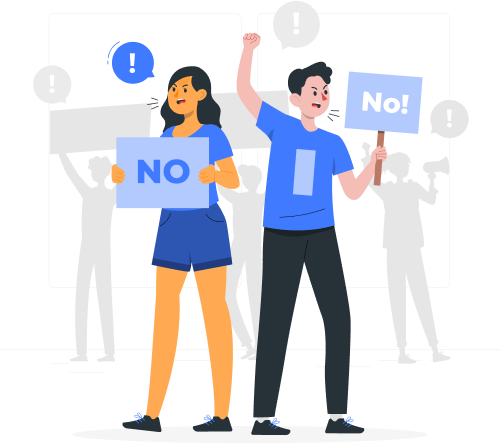Are you feeling stuck and wondering how do I get myself out of this? You’re not alone. This article will guide you through practical steps like recognizing the signs, validating your feelings, and clearing your mind. By following these techniques, you can boost your energy and motivation.

Key Takeaways
- Recognizing signs of a mental slump, like low motivation and sleep issues, is the first step toward reclaiming your energy.
- Validating your feelings through journaling and self-acknowledgment builds confidence and helps you process emotions positively.
- Establishing a routine, reducing negative influences, and focusing on small wins can significantly enhance your mental well-being and help you break free from depressive slumps.

Recognize the Signs of a Mental Slump
Recognizing the signs is the first step in overcoming a mental slump. Everyone has off days…but a slump is a prolonged period where low motivation and procrastination become the norm. Tasks that you want to complete feel difficult to start.
Another telltale sign is a loss of interest in activities that once brought you joy. Social interactions might feel like a chore, and even hobbies you used to love can seem unappealing. This decline in energy levels often comes with an overwhelming sense of apathy towards daily responsibilities.
Sleep disruptions are also common during a mental slump. You might struggle with insomnia or oversleeping, both contributing to the feeling of stagnation. If you don’t address these issues, you may stay stuck in a cycle of fatigue and frustration.
Identifying these signs allows for proactive steps to address them.

Validate Your Feelings
After recognizing the signs, it’s important to start small. It’s important to validate your feelings. Acknowledging that what you’re experiencing is real and significant fosters a sense of safety and understanding, aiding in emotional processing.
Daily journaling can be a powerful tool. Writing down small victories validates these achievements and improves overall mental well-being, serving as a reminder of progress, even if it feels slow.
Validation helps build confidence and creates a sense of safety. It allows you to start feeling better about yourself and your situation. Remember, it’s okay to feel all your emotions, even the negative ones; the key is to not let those feelings define you.

Clear Your Mind
Clearing your mind is essential for overcoming a mental slump. Deep breathing exercises can reset both brain and mood, offering a simple yet effective way to reduce stress and achieve calm.
A calming environment is also important. A clutter-free space can lead to a more peaceful state of mind and help reduce depressive symptoms. Spend time decluttering to create a tranquil and inviting space.
Time alone or in nature can significantly help clear your mind and reset thoughts. Spending time on walks in the park or quiet moments in a room can be incredibly refreshing and rejuvenating.
Meditation can also be a powerful tool. Even five minutes of meditation can help you clear your head and rest your body. Many people find it easier to focus on the things that matter when they meditate even a couple times a week.

Focus on Small Wins
When overwhelmed, focusing on small wins can make a big difference.
Breaking larger goals into smaller, manageable tasks makes them less overwhelming and easier to accomplish. This approach allows success in small increments, boosting motivation and confidence. This is a great way to regain or maintain motivation on your path to achieving a bigger goal.
Daily routines help recognize accomplishments, even small tasks. Completing a DIY project or sticking to a set mealtime can significantly impact overall well-being and help you get back on track. Regular physical activity, even a brisk walk, can significantly improve mood and combat feelings of depression.

Reduce Negative Influences
Reducing negative influences is crucial for overcoming a slump. Limiting social media can reduce feelings of inadequacy and negative comparisons. Establishing boundaries with toxic relationships can alleviate stress and create a more positive perspective.
Identifying and minimizing activities or habits that negatively affect your state of mind fosters a healthier outlook on your own life.

Seek Support
Talking about feelings with trusted friends or a family member can provide relief and insights, especially during challenging times. Emotional validation helps reduce negative emotions and fosters mutual respect in relationships.
Having someone who is an active listener can be a great source of support. It involves giving full attention and allowing the speaker to express themselves without interruption. Validating statements help individuals feel understood, even without agreement on the emotional response.
Joining local groups or online communities centered around creative interests fosters social connections and a support network, allowing you to make many friends. These connections can provide a sense of belonging and help you feel less alone in your struggles.

Establish a Routine
Adhering to a daily routine can regulate quality sleep patterns and enhance overall well-being. A consistent routine provides structure and predictability, beneficial for mental well-being.
Maintaining regular meal times supports nutritional health and can counteract feelings of depression. Consistency in daily activities fosters a sense of control and helps mitigate the chaos often felt during depressive episodes.
Designated areas for work and relaxation at home help mentally separate tasks and downtime. This separation makes it easier to transition between work and relaxation, promoting overall balance and well-being.

Explore New Ideas
Engaging in playful activities enhances creativity and happiness, acting as a powerful stress reliever. Cultivating a playful mindset involves intentionally seeking opportunities for playful moments in daily life.
Experimenting in the kitchen, like trying new recipes or baking, is one way to play. Activities such as painting, reading, or crafting help unlock imaginative potential and reduce stress.
Exploring new hobbies, like photography or creative writing, provides an avenue for self-expression and emotional release. Creative hobbies can significantly enhance personal fulfillment and joy.

Take Professional Help
If negative thoughts persist and affect your daily life, it may be time to seek professional help. Low motivation and negative thoughts could signify deeper mental health issues, such as depression.
Encouraging someone to seek professional help is crucial, as many may not recognize their depression. Therapists may use various modalities, including cognitive behavioral therapy and systemic therapy, tailored to individual needs.

Make It a Habit
Making these practices a habit ensures long-term success. Regular journaling improves mental clarity, allowing better processing of emotions and thoughts. Gratitude journaling significantly boosts overall happiness and reduces stress levels.
Celebrating small accomplishments improves mood and reduces feelings of depression by providing a sense of achievement. Small achievements can trigger short-term dopamine release, boosting motivation and positive feelings.

Get an Accountability Partner
When motivation is low, an accountability partner reminds you of your goals and encourages you to take action. Knowing someone is checking in helps prevent procrastination, making tasks feel more manageable and less daunting.
Slumps often cloud judgment, making it hard to see solutions. An accountability partner offers an outside perspective, helping you reframe challenges and discover new approaches.
Regular check-ins create structure and reinforce positive habits. Over time, this consistency builds discipline, helping you regain momentum and sustain progress.
Beyond productivity, an accountability partner provides reassurance, reminding you that setbacks are temporary. Their support reduces stress and helps you stay focused on progress rather than perfection.
In short, an accountability partner keeps you accountable, motivated, and on track. By committing to this partnership, you increase your chances of overcoming obstacles and regaining momentum.

Summary
In summary, recognizing the signs of a mental slump, validating your feelings, and clearing your mind are crucial first steps. Focusing on small wins, reducing negative influences, and seeking support can help you regain your motivation. Establishing a routine, exploring new ideas, and seeking professional help when needed are key to long-term success.
Remember, these steps are not just one-time actions but habits to incorporate into your daily life. By doing so, you can break free from the cycle of feeling stagnant and reclaim your energy and joy.

Frequently Asked Questions
How do I know if I am experiencing a mental slump?
If you’re feeling unmotivated, losing interest in things you used to enjoy, or noticing changes in your sleep, you might be in a mental slump. Pay attention to these signs; they can be important indicators of your mental well-being.
How can I validate my feelings during a slump?
It’s important to recognize and accept your emotions, and journaling small victories can really help lift your spirits and provide hope. Trust that acknowledging how you feel is a strong step towards feeling better.
What are some small wins I can focus on to get back on track?
Focusing on small wins like engaging in physical activity, breaking larger goals into manageable tasks, and setting a daily routine can really help you get back on track. These little steps can boost your confidence and make your journey feel more achievable!
Why is it important to reduce negative influences?
It’s crucial to reduce negative influences because doing so enhances your mental health and overall well-being. By cutting out toxicity, you create space for positivity and growth in your life.
When should I seek professional help?
If those negative thoughts just won’t quit and start to mess with your daily routine, it’s definitely time to reach out to a therapist for some support. Taking that step can really make a difference!

